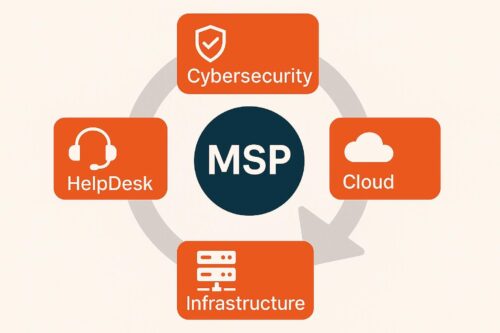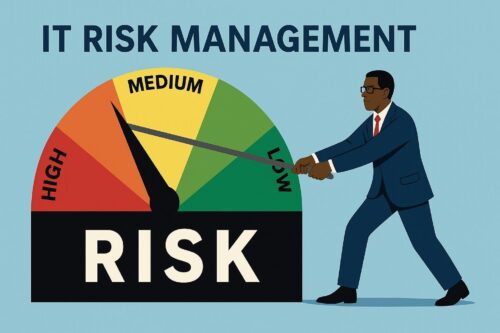Oracle Cracking Down on Non-Compliant Java Licensing Agreements
Oracle, one of the world’s largest software companies, has recently announced a campaign to identify and penalize companies not complying with its Java licensing agreements. The campaign, expected to begin in the coming months, will target companies using Oracle’s Java software without a valid license or using it in ways not authorized by the license.
Key Takeaways:
- Oracle is actively auditing companies for Java license compliance.
- Non-compliance can lead to significant fines, legal action, and reputational damage.
- Businesses should audit their software usage, understand Oracle’s licensing models, and seek expert advice if uncertain.
What Is Java?
Java is a programming language and computing platform widely used to develop applications for web, mobile, and enterprise systems. It was created by Sun Microsystems, which was acquired by Oracle Corporation in 2010. Java is open-source software that is available for free, but certain features and functions are licensed by Oracle.

Why Is Oracle Enforcing Java Non-Compliance Now?
Oracle has stated that the campaign is intended to protect the rights of its intellectual property and ensure that companies are using Java in compliance with its licensing agreements. In recent years, Oracle has filed several lawsuits against companies it believes have violated its Java licensing agreements.
In addition to protecting its intellectual property, Oracle may also be motivated by financial considerations. Java is a significant source of revenue for Oracle, and the company may be looking to increase its licensing revenue by identifying and penalizing companies that are not in compliance with its licensing agreements.
How Will Oracle Identify Non-Compliance?
Oracle has not provided details on how it will identify companies not complying with its Java licensing agreements. However, the company reportedly uses:
- Automated network discovery tools to detect Java installations
- License audits and customer surveys
- Manual investigations by compliance officers
Companies identified as non-compliant may face audits, demands for backdated licensing fees, and even legal action.
What Can Companies Do to Ensure Java Compliance?
Companies should take the following proactive steps:
- Conduct a Java Usage Audit:
- Review all devices and environments where Java is installed.
- Document whether those uses fall under Oracle’s free or paid licensing models.
- Understand Oracle’s Licensing Requirements:
- As of 2019, Oracle introduced a subscription-based model for Java SE. Free public updates for commercial use are no longer available for older Java versions.
- Visit Oracle’s Java SE Subscription FAQ to understand costs and requirements.
- Engage Legal or Licensing Experts:
- Consult a software asset management (SAM) professional or IT legal counsel.
- Consider a third-party compliance audit.
- Implement Usage Controls:
- Limit Java installations to only where necessary.
- Ensure updates and patches are applied regularly.
- Stay Informed:
- Monitor Oracle’s communications and licensing updates.
- Join IT forums or groups focused on licensing compliance.
What Are the Consequences of Non-Compliance?
Companies that are found to be non-compliant with Oracle’s Java licensing agreements may face a range of consequences, including:
- Fines and penalties
- Legal action
- Loss of reputation
- Disruption to business operations
In addition to these consequences, non-compliance with Oracle’s licensing agreements could lead to security risks and potential data breaches.
Frequently Asked Questions
- What Is Java? Java is a programming language and computing platform widely used to develop applications for web, mobile, and enterprise systems.
- Why Is Oracle going on a hunt for Java non-compliance? Oracle is hunting for Java non-compliance to protect its intellectual property and ensure that companies use Java in compliance with its licensing agreements.
- How will Oracle identify non-compliance? Oracle has not provided details on identifying non-compliance, but the company will likely use a combination of automated tools and manual reviews.
- What are the consequences of non-compliance with Oracle’s Java licensing agreements? Companies that are found to be non-compliant with Oracle’s Java licensing agreements may face fines, legal action, loss of reputation, disruption to business operations, security risks, and potential data breaches.
- What should companies do to ensure Java compliance? Companies should review their use of Java software, obtain a valid license for any use that requires it, and avoid using Java software in ways not authorized by the licensing agreement. It is also recommended to consult with a legal expert or contact Oracle directly for guidance if unsure of compliance status.
Need a Professional Evaluation? We Can Help
Oracle’s campaign to audit Java usage is already underway and impacting businesses globally. Organizations must take steps now to ensure compliance, avoid legal complications, and secure their IT environments.
If you’re unsure about your Java compliance or want a professional evaluation, Mainstreet IT Solutions can help. We offer expert IT guidance and software asset management services to keep your systems compliant and secure. Contact us today to schedule a consultation.




